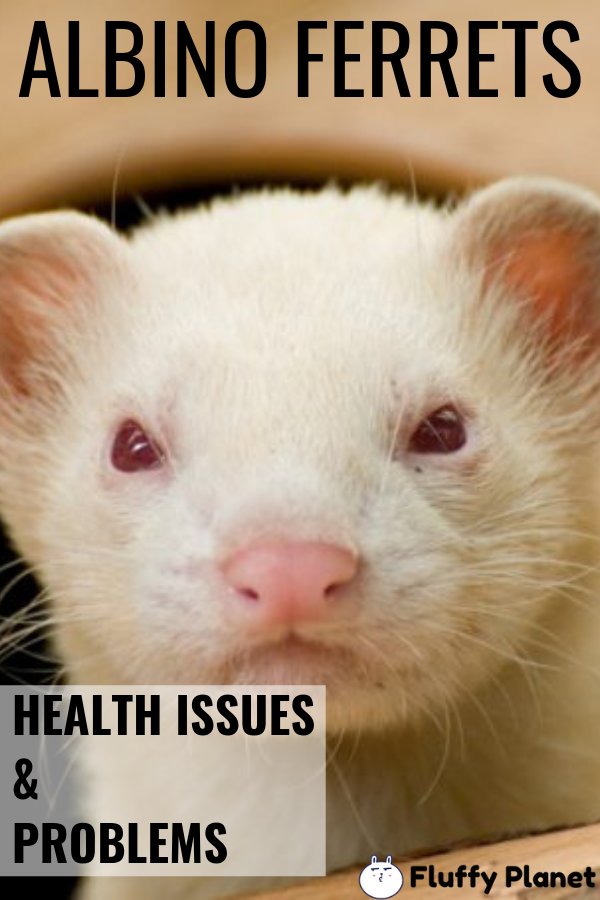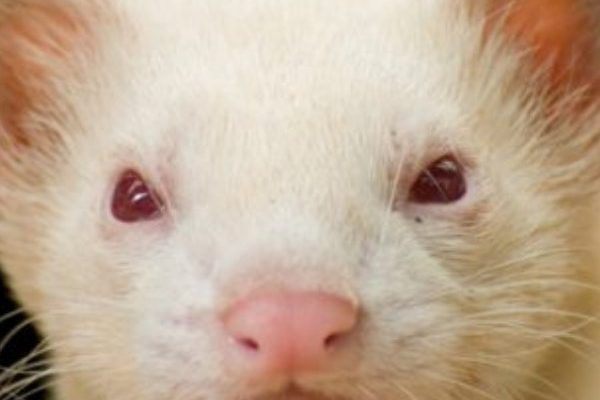
Albino ferrets are particularly prone to certain health issues mainly because of their unique genetics. Their lack of pigment can make them more susceptible to particular illnesses and complications. Understanding these problems and being proactive can make a big difference in ensuring your furry friend lives a long, happy life. Here’s what you need to know.
Common Health Problems in Albino Ferrets
When it comes to albino ferrets, a handful of health issues stand out more than others. Recognizing these can help you keep an eye on your pet and seek veterinary care when needed.
Adrenal Disease
Adrenal disease is one of the most prominent issues facing ferrets, especially those with lighter coats like albinos. This condition occurs when the adrenal glands produce too many hormones, leading to symptoms like hair loss, lethargy, and sometimes, aggressive behavior. It’s kind of like running a car on the wrong fuel; it might run for a bit, but it’ll eventually cause problems.
To help prevent adrenal disease:
- Regular Vet Check-ups: Annual check-ups can catch early signs before they develop into something more serious.
- Nutrition: Feed your ferret a balanced diet rich in animal protein to support their health.
- Spaying or Neutering: This can significantly reduce the risk of developing adrenal tumors.
Insulinoma
Insulinoma is another common health issue. It happens when ferrets develop tumors on the pancreas that produce too much insulin, leading to dangerously low blood sugar levels. This can manifest as weakness, seizures, or even fainting. It’s a bit like when your phone battery drops to red; if you don’t recharge it soon, it’ll shut off.
To assist in preventing insulinoma:
- Watch Their Diet: Feed your ferret small, high-quality meals throughout the day to maintain stable blood sugar levels.
- Monitor Behavior: Keep an eye out for signs of weakness or unresponsiveness, as early detection can help manage the issue more effectively.
Skin Problems
Albino ferrets can also suffer from skin issues, particularly because of their lack of pigment. Conditions like allergies or infections can lead to itchiness, hair loss, and discomfort. Imagine having dry skin that never seems to get better—frustrating, right?
Here’s how to help prevent skin problems:
- Regular Cleaning: Keep their living environment clean to reduce allergens.
- Gentle Grooming: Brush their fur regularly to remove dirt and debris, which helps maintain healthy skin.
Preventive Care Tips
Preventive care is your best ally when it comes to keeping albino ferrets healthy. Here are some essential strategies to consider.
Regular Veterinary Visits
Making sure your ferret sees a vet at least once a year is crucial. Vets can perform routine tests and check-ups that can catch health issues early. Just like taking your car in for its regular service, this ensures everything is running as it should.
If you notice any changes in behavior or diet, don’t wait for the annual visit—get them checked out sooner rather than later!
Proper Nutrition
Feeding your albino ferret a nutritionally balanced diet is vital. Use high-quality ferret food that’s rich in protein and low in carbohydrates. Think of their diet as the fuel for their little engines; if they’re not getting the right stuff, they won’t perform well.
You might want to supplement their diet with small treats like cooked meat or ferret-safe fruits (like bananas), but make sure to do this sparingly!
Environmental Considerations
The environment where your ferret lives can significantly impact its health.
Safe Space
Create a safe and comfortable living space for your ferret. Ensure their area is free of hazards, like small objects they could swallow or cords they could chew on. It’s similar to baby-proofing your home; being proactive means fewer risks for your little companion.
Temperature Control
Albino ferrets can be sensitive to temperature extremes. They thrive best in a temperature range that’s comfortable—not too hot and not too cold. Make sure their space is well-ventilated, and avoid exposing them to direct sunlight for prolonged periods. You wouldn’t want to be out in the sun without sunscreen, right?
Understanding Behavioral Changes
Behavior can often be a window into your ferret’s health. If you notice significant changes, like increased aggression or lethargy, it could indicate underlying health issues.
Watch for Warning Signs
Keep an eye on your ferret’s behavior. If they become less active or stop playing, it might be time to consult with your veterinarian. It’s crucial to pay attention to their habits and moods, as these can be early indicators of health problems.
Social Interaction
Ferrets are social creatures and benefit from interacting with their human companions. Spend time playing and bonding with them. This not only keeps them happy but also gives you a chance to observe any unusual behaviors that could signal health issues.
Caring for an albino ferret can be rewarding, but it also comes with its set of responsibilities, especially when it comes to health care. By being aware of common health issues like adrenal disease and insulinoma, and by taking preventive measures such as regular vet check-ups and proper nutrition, you can help your ferret thrive.
Remember, every little effort counts. Just like maintaining a classic car requires attention to detail, keeping your precious ferret healthy needs the same level of care and attention. So go ahead, embrace your role as a ferret parent, and enjoy every moment with your lively little friend!

